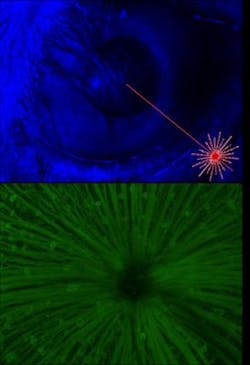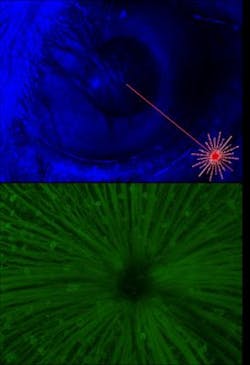NanoScope receives grant for exploring ultrafast laser-based therapeutic gene delivery
With retinitis pigmentosa (RP; a cause of retinal degeneration), visual loss starts with the peripheral region progressing towards the center leading to tunnel vision—currently, there is no cure to restore vision in these patients.
Recognizing this, scientists at NanoScope Technologies (Dallas, TX) have developed a highly photosensitive multi-characteristics opsin (MCO) that allows stimulation of retinal cells for restoring vision in patients with RP and other genetic retinal diseases who have lost their photoreceptors. The company has been awarded a National Institutes of Health (NIH) Audacious Goal Initiative (AGI) R01 Grant from the National Eye Institute (NEI; Bethesda, MD) to re-sensitize the photodegenerated retinal areas with MCO by targeted gene delivery using an infrared (IR) ultrafast laser.
By facilitating cross-disciplinary research, the AGI is tackling the most devastating and difficult-to-treat eye diseases. Through strategic research funding, the NEI has enlisted dynamic scientists who are developing the necessary knowledge and technology to make the goal a reality.
With the grant, the company will develop and carry out IR ultrafast laser-based gene delivery to the retina in living, blind animals for vision restoration. The technology will have significant potential for future clinical ophthalmological use in humans, according to Weldon Wright, chief medical officer of NanoScope Technologies.
For more information, please visit www.nanoscopetech.com.

